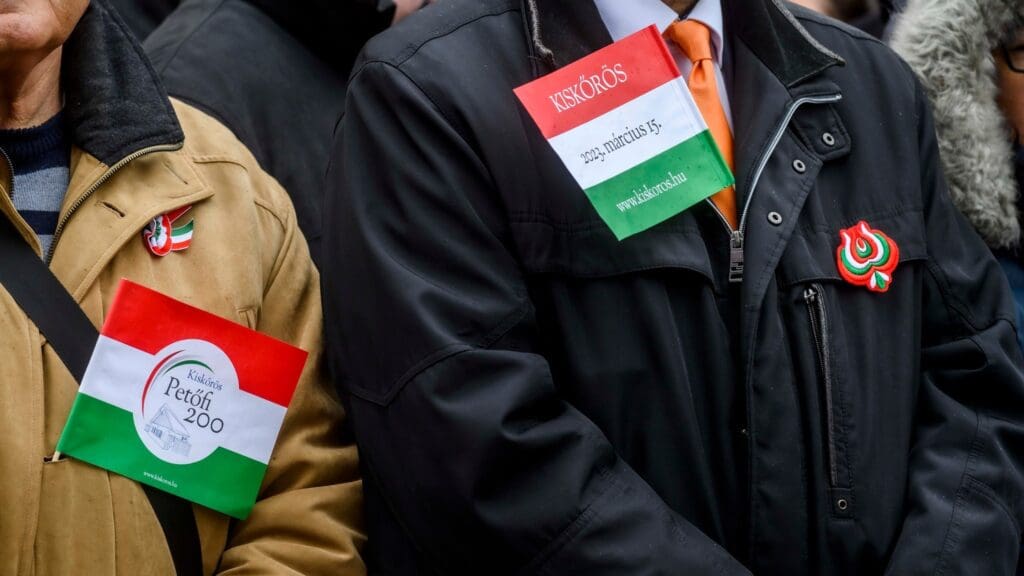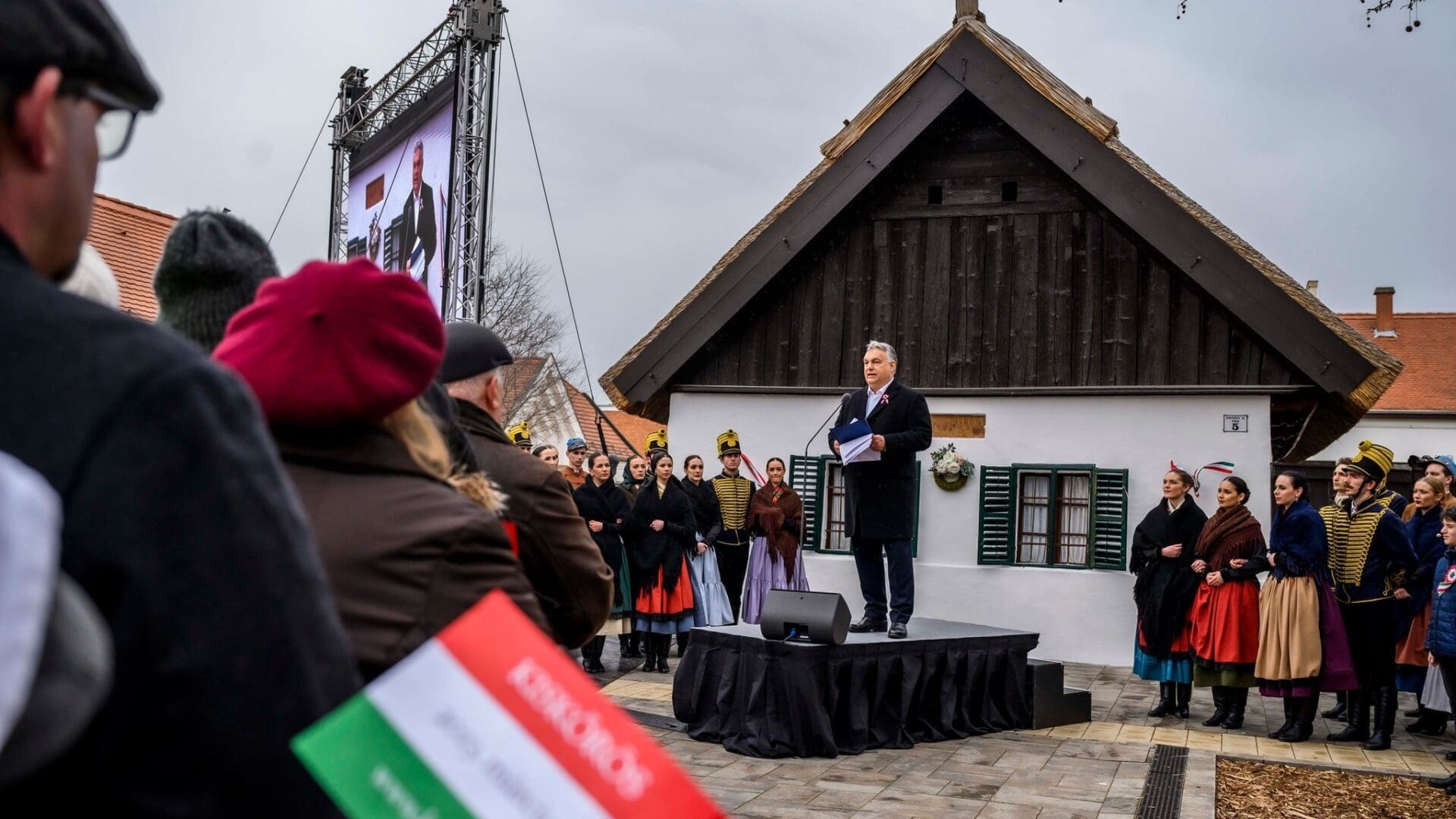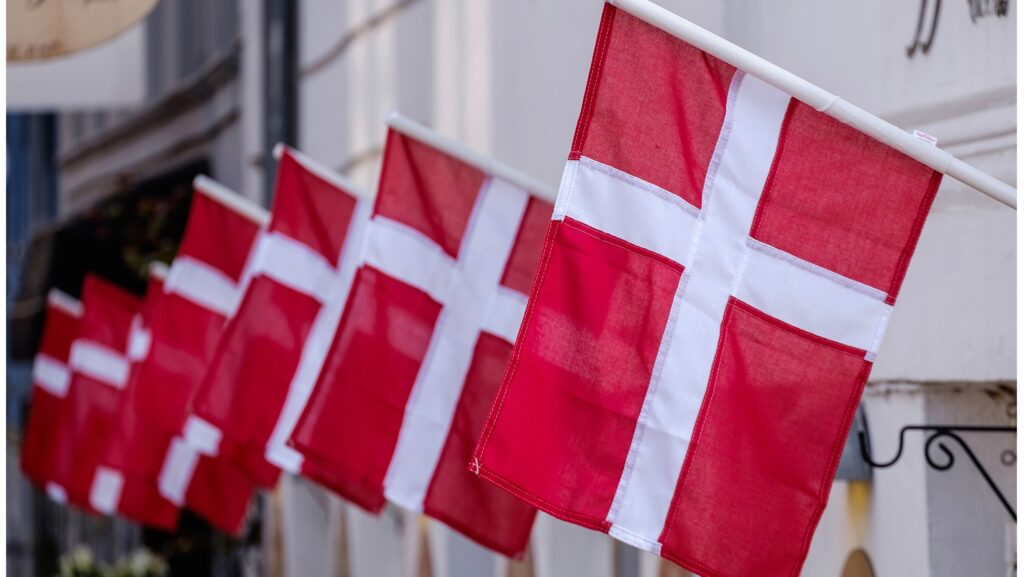‘We will never allow the flag of freedom to be wrestled from the hands of Hungarians,’ Prime Minister Viktor Orbán declared in his remarks delivered on Wednesday in Kiskőrös.
On the anniversary of the 1848–49 revolution and freedom fight, the prime minister emphasised at the celebration in front of the birthplace of poet Sándor Petőfi that the march for Hungarian freedom continues today.
‘Sándor Petőfi is with us in this march today,’ he said, adding: ‘We see Petőfi rebelling when foreigners try to tell Hungarians how to live, we see him turning against the world’s superpowers who want to reabsorb Hungarians into a European superstate, and we see him directing us to the 12 points for peace.’
The prime minister said that every Hungarian has a little bit of Petőfi inside them, and every Hungarian is in Petőfi. He characterised the life of Petőfi Sándor, who was born two hundred years ago, as ‘a 26-year orbit in the Hungarian sky that starts from the depths Hungary and ends on the Milky Way.’ He added that Petőfi was a flash that his own nation has been following and admiring with bated breath. The Hungarians see Petőfi as one of their own who rises above them, he emphasised.
‘Sándor Petőfi is our beloved son. Every Hungarian child has known at least one line of his work since childhood. Therefore, we do not need to say it out loud; without words, we know that every Hungarian has a little bit of Petőfi inside them, and every Hungarian is there in Petőfi,’ he said.
The poet, Orbán noted, also spoke about the achievements Hungary has made over the years, such as building homes for science, constructing railways, and launching steamships on the Danube. When asked, however, what gives higher meaning to finite life and to the homeland, Petőfi provided the answer: ‘Stand up, Hungarian! Shall we be slaves or free? Long live the free and independent Hungary!’ he stressed.
Hungarians have been retelling the story of 15 March over and over again for 175 years
because it is a great, shared birthday, where Hungarians recall the birth of Hungarian freedom,
Viktor Orbán said. The sweeping march of Hungarian freedom did not start from the Pilvax coffeehouse or even from the National Museum’s stairs, but from Kiskőrös, the prime minister explained the choice of the location for the state celebration.

The prime minister also paid tribute to the Petrovics family. In memory of the poet’s father, István Petrovics, he said that he became a full member of the free community of the Kiskuns [that is, he was a Kiskun or Little Cuman redemptus, with special privileges and freedoms] when he reached the peak of his life. Petőfi’s mother, Mária Hrúz, gave birth to the greatest Hungarian poet as a Slovak woman.
He stated that Hungarians consider Petőfi the greatest poet because he embodies the spirit of the Hungarian nation. Petőfi was not meant to be a soldier, Viktor Orbán reminded, and was a difficult person, but people still cherished him in their hearts. God also helped him by not letting his talent turn into pride, and his self-confidence into arrogance. He never left the spiritual field of the Christian world and worked tirelessly, Prime Minister said.
Although he only was able to create greatness for five years, his life’s work was complete because he ‘fully paid everything he promised to the country in his poetry’. If we settle for less than what we could be, we become unworthy of ourselves, the PM declared. ‘We are not just anyone; we are Hungarians, and being born Hungarian means having an obligation to be worthy of our nation,’ he stated.
Petőfi wanted to be a free citizen of a free Hungary, the Prime Minister stressed. ‘We, his soft successors today, think he would have deserved to die in bed, among pillows, but he decided differently: he died as he sang, as an apostle of world freedom, in the battle for Hungarian freedom.’
‘There is a little Petőfi in every Hungarian. Long live freedom, long live the homeland! God above us all, Hungary above all! Go Hungary, go Hungarians!’, the Prime Minister concluded.








